European Economic
and Social Committee
Conclusions of the event
European students from 28 countries took part in a virtual youth summit on climate and presented their recommendations live to European Commission Executive Vice-President Frans Timmermans.
This year's Your Europe, Your Say! (YEYS) event, entitled 'Our Climate, Our Future!' took the form of a COP climate negotiation, empowering students to engage with climate solutions, and brought together online 234 teenage students and 56 teachers from 28 European countries.
The conclusions the students came to were presented to Frans Timmermans, European Commission Executive Vice-President at the closing session, chaired by EESC Vice-President Cillian Lohan, making this a valuable contribution to the EU Climate Pact of the European Commission.
The students' proposals were as follows:
- Investing in carbon removal in urban spaces by planting city trees and installing vertical gardens, a solution already being implemented in some places in Europe.
- Investing in new technologies that will make it possible to remove carbon now and quickly
- Supporting afforestation as one of the most efficient long- term solutions for carbon removal
- Investing in more education for the general public
- Focusing not only on quick remedies but also on long-term solutions for carbon removal that can encourage people to adopt new habits
- Implementing tailor-made policies that respond to each country's specific circumstances
- Introducing hydrogen and biogas while phasing out fossil fuels
- Investing heavily in existing carbon-removal technology
- Capping pollution amounts, rather than taxing them, as those still end up being paid for by the consumers
- Investing more in the efficiency of renewable sources and making this the top priority on the EU’s agenda
- Making new buildings greener with solar panels, so that buildings can rely on a renewable energy supply
- We must find the middle course between old, quick short-term solutions and new, long-term solutions
- EU plans to reduce the number of new certificates issued in the cap-and-trade system by 48 million each year until 2030, but that way, the zero net goal will not be reached until 2057. If certificates are decreased by 66 million per year instead, the last certificates will be issued in 2040. That would work more in line with the Green Deal. It would be beneficial if Australia and other countries were also included in this agreement.
- The EU needs to start an “Ecological Manhattan-Project” and invest vast amounts in new technologies and, in so doing, help rapidly developing nations to tackle their problems by sharing new technologies, for example, with patent-free solutions
- It is important to close the gap as far as possible between developed and developing nations
- We should think of providing more workplaces for citizens from developing countries in eco-friendlier sectors, such as bioenergy, renewable energy etc., so that people are not so dependent on agriculture
- Increasing the general interest of investors and investment in renewable energy, which can be as much as three times cheaper than conventional power plant development
- Conventional suppliers do outperform clean ones in times of peak demand, but this problem can be addressed though the development of higher-capacity electricity storage units.
Welcome by:
 Cillian LOHAN, EESC Vice-President
Cillian LOHAN, EESC Vice-President
The youth movement has shown that change can come from the streets. Today we help those demands for more action to resonate in the corridors of power.
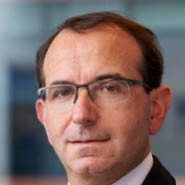 Gianluca Brunetti, Secretary-General of the European Economic and Social Committee
Gianluca Brunetti, Secretary-General of the European Economic and Social Committee
The EESC works as a bridge between the EU institutions and civil society, and so listening to young European citizens is a very important part of our activity.
Speakers involved:
 Christa SCHWENG, EESC President
Christa SCHWENG, EESC President
We need a green transition to a green economy that leaves no one behind. This means boosting green investments, promoting new lifestyles and forms of consumption. To achieve this, we need active citizens. This starts with involving young people!
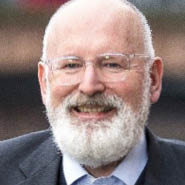 Frans TIMMERMANS, European Commission Executive Vice-President
Frans TIMMERMANS, European Commission Executive Vice-President
You have to help me and my generation and your parents' generation to change in order to give you a future. With your help, I'm sure we will convince the entire population.
 Ska KELLER, Co-President Greens/EFA in the European Parliament
Ska KELLER, Co-President Greens/EFA in the European Parliament
Without public pressure we wouldn't have got as far as we are now
!
 Anuna de WEVER, Climate activist
Anuna de WEVER, Climate activist
Dare to think outside the box and be brave enough to imagine a different world! We need young people to lead this change!
 Adélaïde CHARLIER, Climate activist
Adélaïde CHARLIER, Climate activist
We have to start communicating to citizens on the real crisis that we are facing! We expect more ambition from the European Union and must make sure that we stay coherent in our policies!
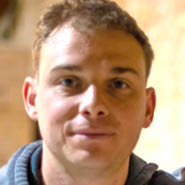 Samuel MASSE, President of the European Council of Young Farmers
Samuel MASSE, President of the European Council of Young Farmers
European young farmers are committed to playing a role in tackling climate change and building a more sustainable Europe
Quotes from the students
Relja (Serbia) -
Humanity has been pumping greenhouse gases into the atmosphere for decades and they’ll stay there if we don’t do something about it. We have to make right what the past generations have done wrong.
Birsen (Bulgaria) -
By working together, we have proven that we can achieve greatness and efficiency. The results from this amazing project, including phenomenal people, show it.
David (Germany) -
Listen to the youth! Listen to FFF (Fridays For Future)! Listen to the scientists! We need to start taking action now!
Designing Systemic Change 'side event'
In line with the organisation of a COP, the EESC organised a side event for young people. The event brought together experts, activists and influencers to share their knowledge and expertise regarding climate change in the context of systemic change. The audience was invited to share their views on the changes they would like to see from their governments.
 The young audience actively participated in the debate, expressing their will for more action, more cooperation, and more decisiveness from their government in the fight against climate change. It also came out that the main sources of inspiration for a more sustainable live are activists and the youth movements.
The young audience actively participated in the debate, expressing their will for more action, more cooperation, and more decisiveness from their government in the fight against climate change. It also came out that the main sources of inspiration for a more sustainable live are activists and the youth movements.
The speakers involved for the 'side event' were:
 Cillian LOHAN, EESC Vice-President
Cillian LOHAN, EESC Vice-President
We have to be bold and create a system where the ethical and right choice is the default choice!
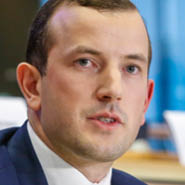 Virginijus SINKEVIČIUS, Commissioner for the Environment, Oceans and Fisheries, at the European Commission
Virginijus SINKEVIČIUS, Commissioner for the Environment, Oceans and Fisheries, at the European Commission
Our environment is facing 4 urgent crises: climate change, biodiversity loss, resources depletion, factory pollution. They are all connected, so we should tackle them together. Our political priority, is the EU #GreenDeal
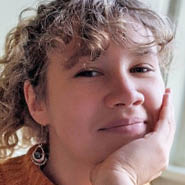 Josephine BECKER, Climate activist, writer and student
Josephine BECKER, Climate activist, writer and student
The more people we are, the more solutions we can create. Be as outrageous as you can be and don’t be afraid to challenge the status quo!
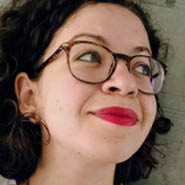
Corina ANGHELOIU, Principal Design Strategist for the global sustainability non-profit Forum for the Future
When we talk about system change is not really like baking a cake, we do not have a recipe, but more like rising a child, do your best, but at the end of the day, the sum of the parts are bigger than the individual ones.
 Nisreen ELSAIM, Climate activist and Chair of the UN Youth Advisory Group on Climate Change
Nisreen ELSAIM, Climate activist and Chair of the UN Youth Advisory Group on Climate Change
Climate action is not a choice. It’s a moral commitment.
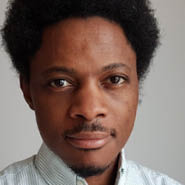 Lewis AKENJI, Managing Director at the Hot or Cool Institute
Lewis AKENJI, Managing Director at the Hot or Cool Institute
We are just around the fringes not about the core of the economic system. We need to change the system for the well-being of our planet.
 Saoi O'CONNOR, Climate Activist
Saoi O'CONNOR, Climate Activist
People are unwilling to step into something that is unfamiliar or unknown, or scary, and we need that from our leaders. People have to change their priorities, not just on the individual level, but on that systemic level, and do what it is needed from them.
 Juliet BONHOMME, Slow fashion campaigner
Juliet BONHOMME, Slow fashion campaigner
I discovered that inspiration and showing the example was the greatest way to make people act. So just showing what you want to do in a good way, with your own motivation, I think it's the best inspiration you can have and the most impact you can have too, because when you want people to act or you want to change their behaviour, it won't work.
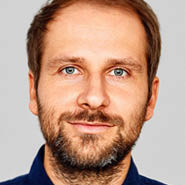 Christian KROLL, Ecosia founder
Christian KROLL, Ecosia founder
People behave in a very climate unfriendly way, but I realised that people don't have the right context, the right understanding about climate change. Once people really understand climate change, they will also probably start acting differently. The only person that can change is yourself.
Artistic elements
In addition to the discussions, the audience had the possibility to discover systemic change through art, with comments from the young audience being translated into art works:
Sophie Ong (More about Sophie's artwork)
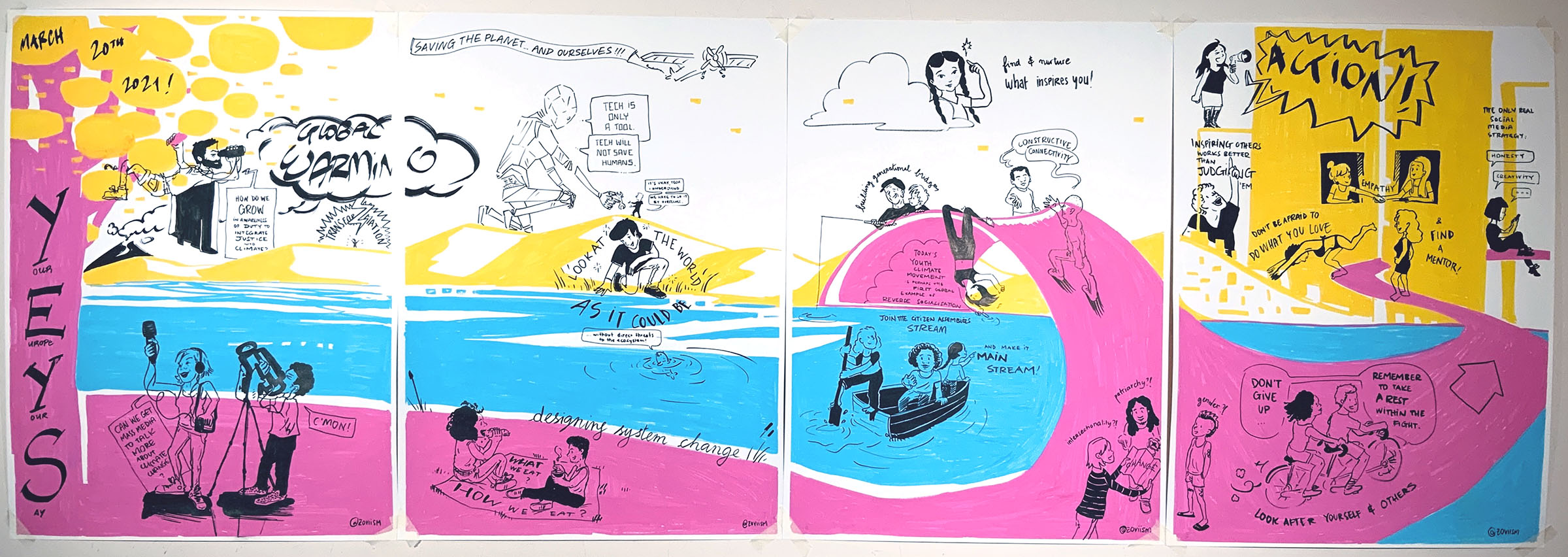
Tibor Miklos (More about Tibor's artwork)
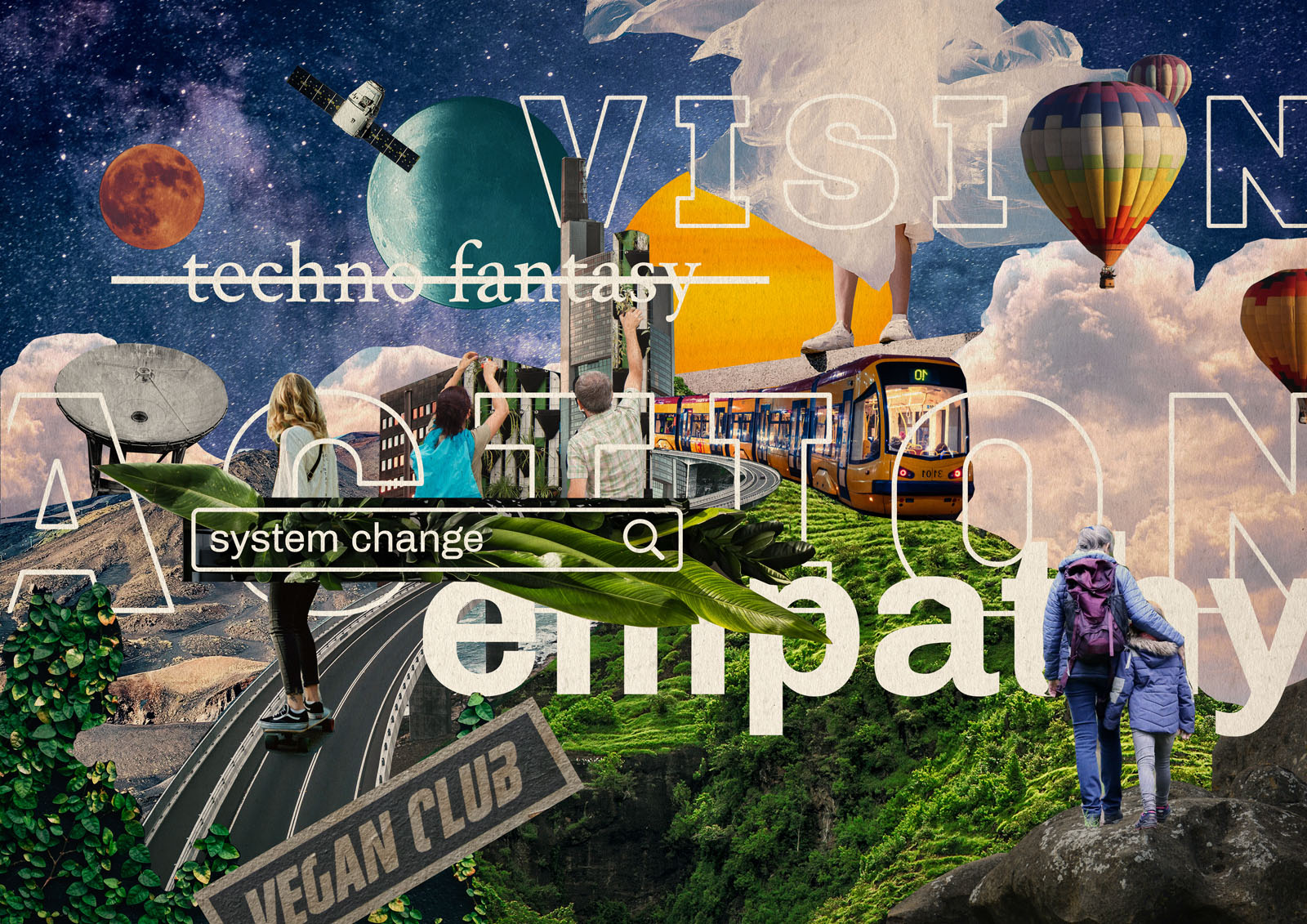
A storyboard/visual representation of the whole event was also produced by Esther Blodau, and used for social media mainly, after the event.
Esther Blodau (More about Esther's artwork)
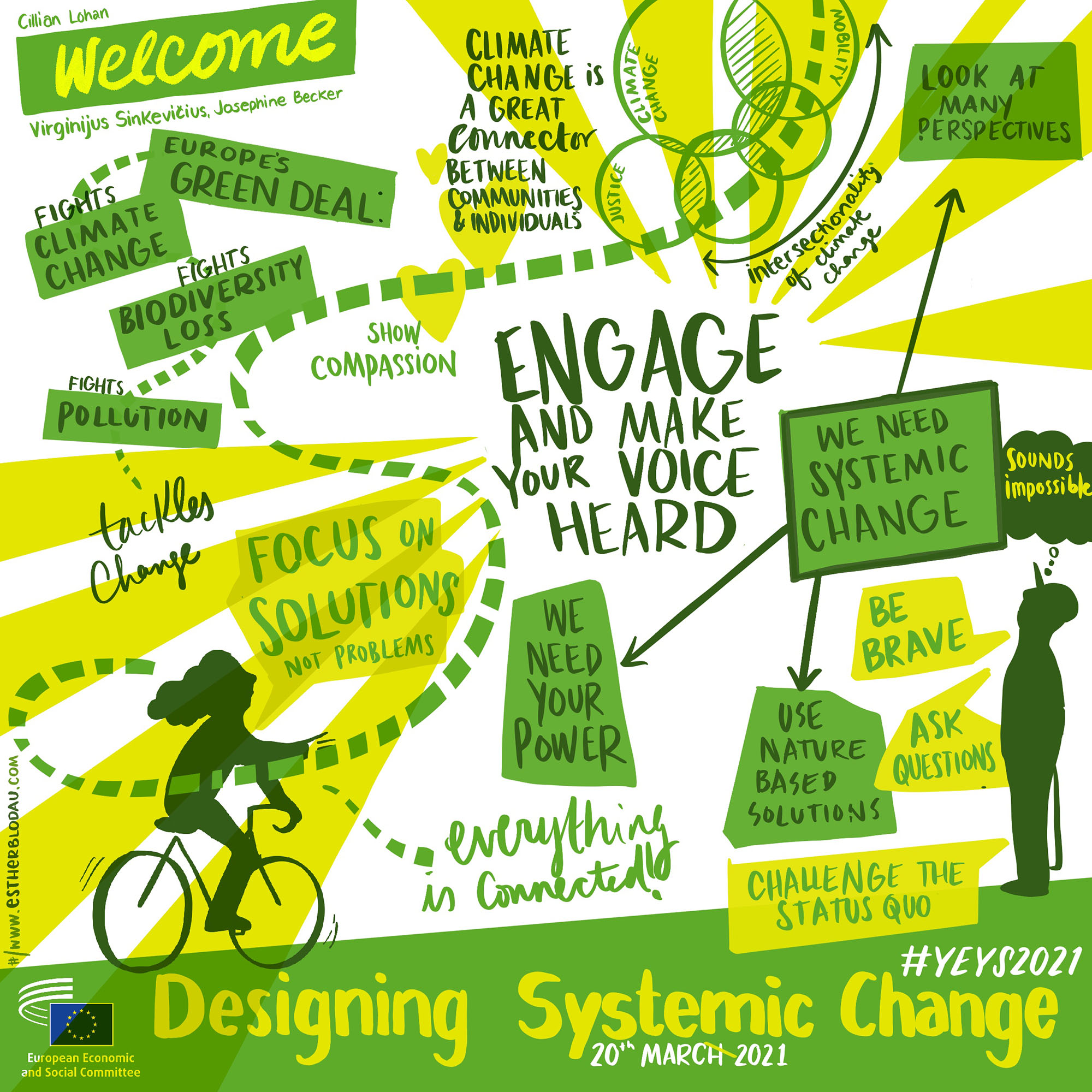
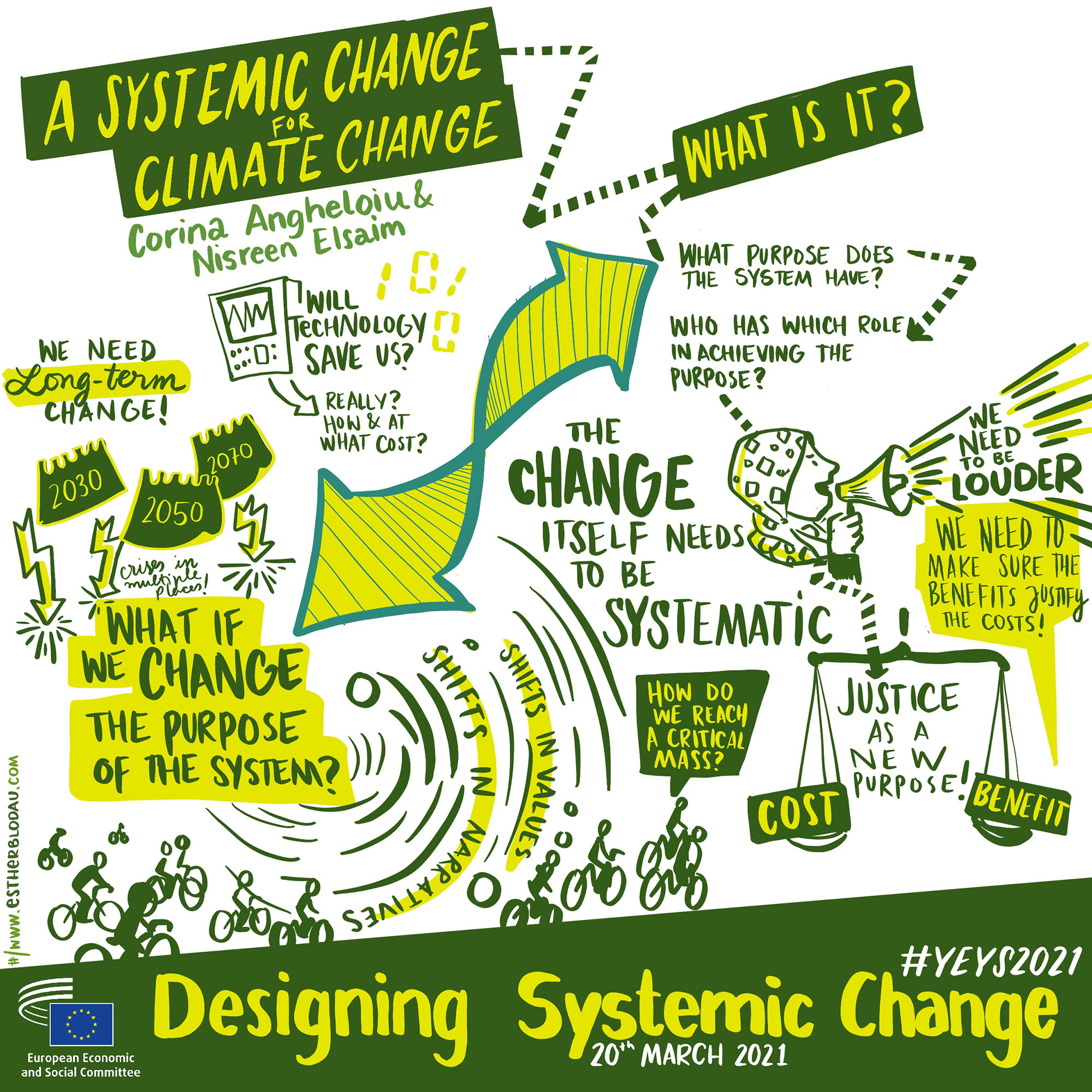
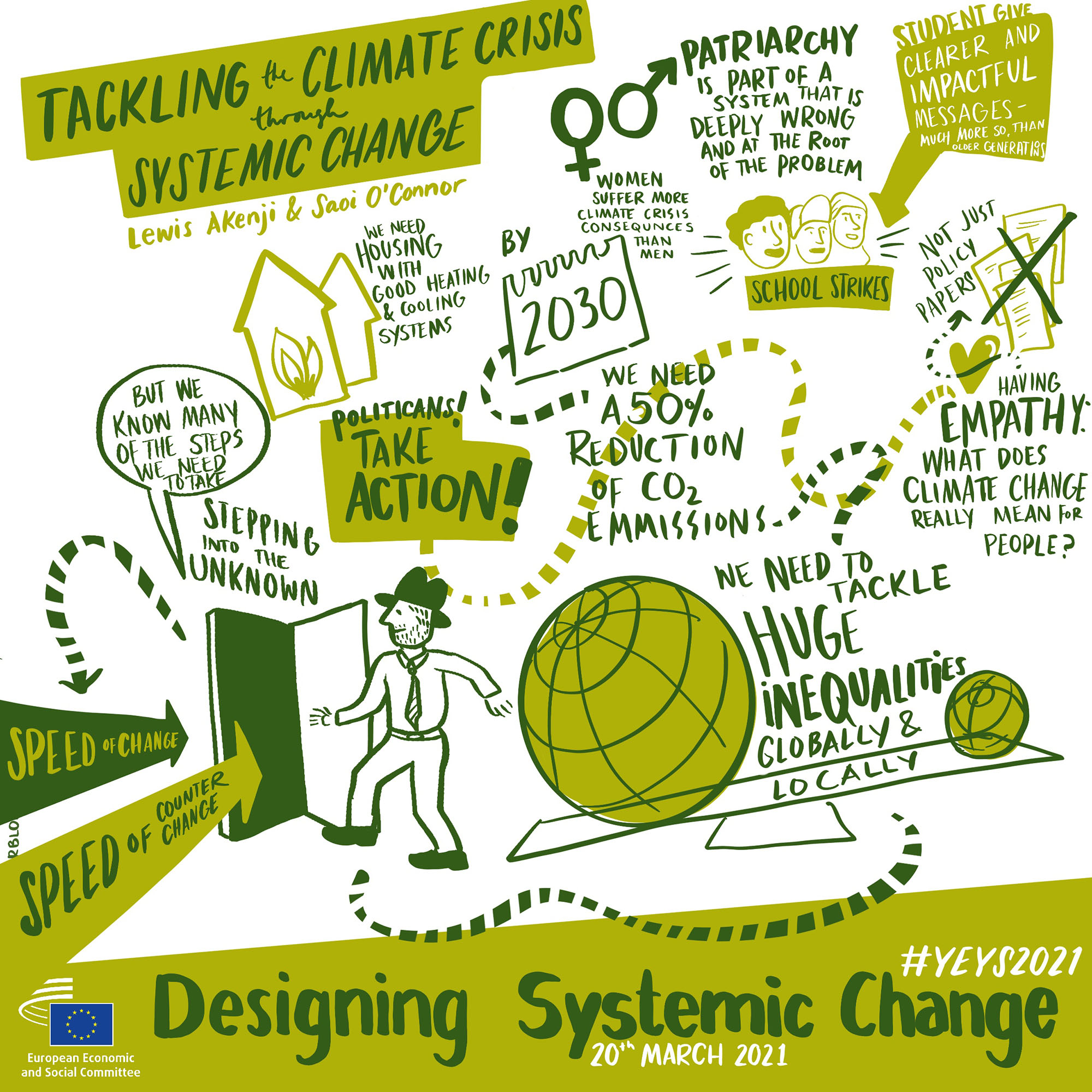
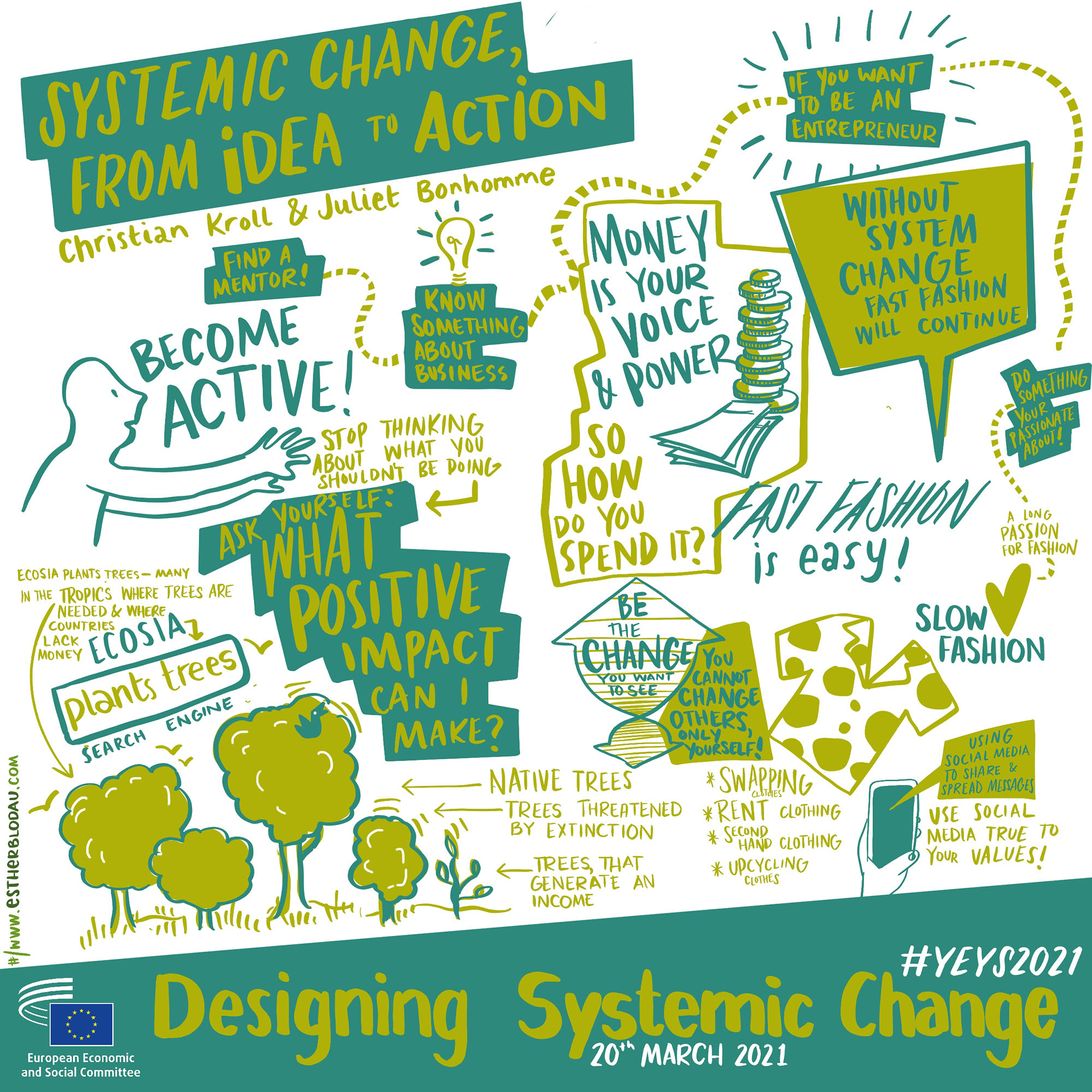
Downloads
-
YOUR EUROPE YOUR SAY 2021 - CONCLUSIONS